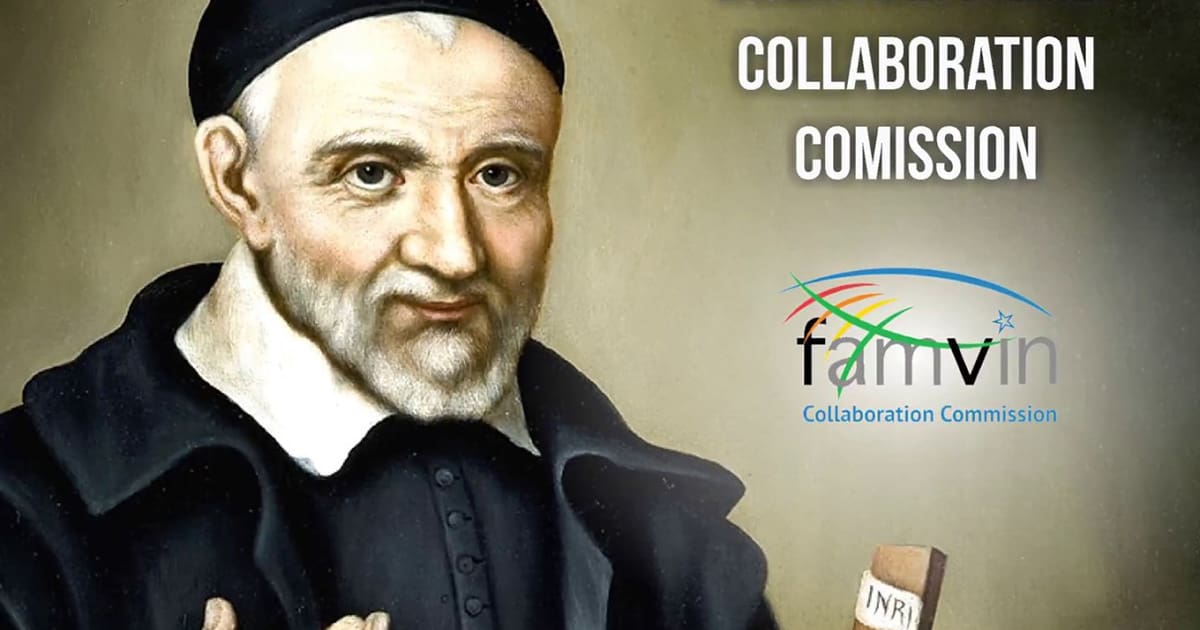Successes and Failures in Collaborative Efforts [Video]
My name is Joe Agostino. I am a priest of the Congregation of the Mission and am serving as the Coordinator of the Vincentian Family Collaboration Commission.
Like most realities in life, collaboration never happens in a straight line. As is true of any relationship, partners in a project will experience both good and difficult times. There are certainly factors which may contribute to or intensify a situation, good or bad. And I’d like to explore those in a moment.
But I am convinced that there is one underlying factor that will shape how good and bad times are handled: the very level of commitment to the process of collaboration by the partners.
When I firmly believe that the only effective way to serve is by working together with others, I will seek every opportunity to strengthen the bonds of collaboration. I will affirm that I am in it for the long haul. And I will be realistic, with the necessary commitment to work through problems that may arise for the sake of our shared mission.
As partners enter collaborative projects, any number of factors can wreak havoc on their efforts. Often, the following issues have caused these efforts to fail:
Money – very often, relationships are strained over fiscal conflicts. This can be especially true when each partner is receiving funding for providing a specific service for a common project. And there are times these tensions arise even when clearly written contracts are in place. Defining how funds will be used, distributed, and monitored may help a group navigate these tensions.
Power – which partner has the lead in the collaborative effort, which one supervises the project and its volunteers or employees, or how partners are acknowledged in ongoing promotional efforts, can all become difficult issues in the unfolding of a collaboration. A clearly written Memorandum of Understanding among the partners, defined before the service even begins, may help diffuse some of these issues.
Lack of clarity on the Mission – although most partners may agree on the importance of a particular effort, this does not necessarily mean that they share a common mission, have a common vision of goals or outcomes, or share the same values in the execution of a project. These differences can cause great tensions among the partners and can cause the dissolution of any collaborative venture, no matter how important.
For collaborative efforts to be effective there are some dynamics that need to be woven into the fabric of the relationships. I will call them the 3 T’s of collaboration.
Trust – relationships are built on trust; without it, there is no way a collaboration can endure. And trust is only earned as partners spend time together, create common experiences, and invest their energies in the common project which they share.
Time – everyone is busy. And everyone gives priority to that which is important to them.
Partners need to work from the conviction that through their common efforts they are working smarter, not harder. And they also need to be convinced that their project is not a waste of time or resources, but a necessary service to people most in need.
Talent – collaborations cannot survive without a recognition of the gifts and talents which all the partners bring to the table. As Vincentian collaborators, the people around the table also need to include members of the service population with and for whom they are working.
We hope that this brief exposé of the successes and failures of collaboration will be helpful to the Vincentian Family in its ongoing efforts to work together in the service of those living in poverty.
Tags:







Vou ler melhor texto e tentar explora-lo.